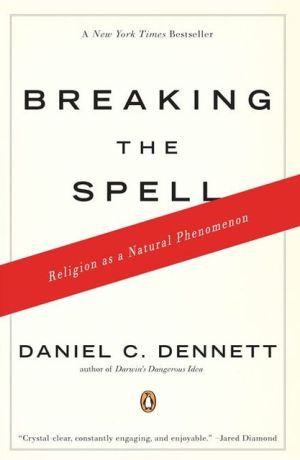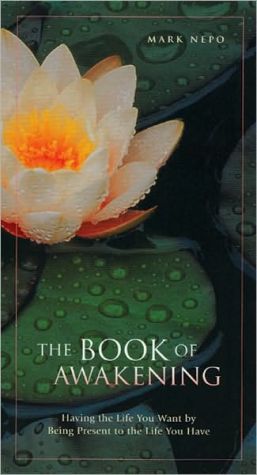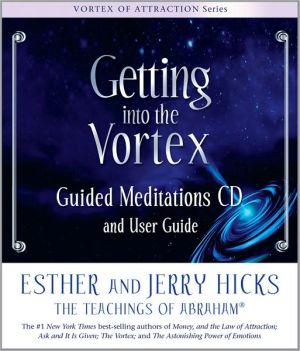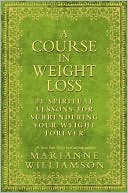Breaking the Spell: Religion as a Natural Phenomenon
For all the thousands of books that have been written about religion, few until this one have attempted to examine it scientifically: to ask why—and how—it has shaped so many lives so strongly. Is religion a product of blind evolutionary instinct or rational choice? Is it truly the best way to live a moral life? Ranging through biology, history, and psychology, Daniel C. Dennett charts religion’s evolution from “wild” folk belief to “domesticated” dogma. Not an antireligious screed but an...
Search in google:
For all the thousands of books that have been written about religion, few until this one have attempted to examine it scientifically: to ask why—and how—it has shaped so many lives so strongly. Is religion a product of blind evolutionary instinct or rational choice? Is it truly the best way to live a moral life? Ranging through biology, history, and psychology, Daniel C. Dennett charts religion's evolution from “wild” folk belief to “domesticated” dogma. Not an antireligious screed but an unblinking look beneath the veil of orthodoxy, Breaking the Spell will be read and debated by believers and skeptics alike. Publishers Weekly In his characteristically provocative fashion, Dennett, author of Darwin's Dangerous Idea and director of the Center for Cognitive Studies at Tufts University, calls for a scientific, rational examination of religion that will lead us to understand what purpose religion serves in our culture. Much like E.O. Wilson (In Search of Nature), Robert Wright (The Moral Animal), and Richard Dawkins (The Selfish Gene), Dennett explores religion as a cultural phenomenon governed by the processes of evolution and natural selection. Religion survives because it has some kind of beneficial role in human life, yet Dennett argues that it has also played a maleficent role. He elegantly pleads for religions to engage in empirical self-examination to protect future generations from the ignorance so often fostered by religion hiding behind doctrinal smoke screens. Because Dennett offers a tentative proposal for exploring religion as a natural phenomenon, his book is sometimes plagued by generalizations that leave us wanting more ("Only when we can frame a comprehensive view of the many aspects of religion can we formulate defensible policies for how to respond to religions in the future"). Although much of the ground he covers has already been well trod, he clearly throws down a gauntlet to religion. (Feb. 6) Copyright 2005 Reed Business Information.
1Breaking which spell?32Some questions about science293Why good things happen544The roots of religion975Religion, the early days1166The evolution of stewardship1537The invention of team spirit1758Belief in belief2009Toward a buyer's guide to religions24910Morality and religion27811Now what do we do?308App. AThe new replicators341App. BSome more questions about science359App. CThe bellboy and the lady named Tuck379App. DKim Philby as a real case of indeterminacy of radical interpretation387
\ From Barnes & NobleFaith-based initiatives; evolution vs. intelligent design; the right to life vs. the right to choose; gay marriage; international terrorism: Even if you're not a believer, you can ignore religion only at your own risk. In this provocative book, philosopher Daniel C. Dennett asserts that religion is a cultural phenomenon shaped and governed by the processes of evolution and natural selection; succinctly stated, we are hard-wired to believe. At a time of ever-widening schism between rationalists and believers, Breaking the Spell offers an analysis that acknowledges the power of faith without relinquishing the claims of reason.\ \ \ \ \ Publishers WeeklyIn his characteristically provocative fashion, Dennett, author of Darwin's Dangerous Idea and director of the Center for Cognitive Studies at Tufts University, calls for a scientific, rational examination of religion that will lead us to understand what purpose religion serves in our culture. Much like E.O. Wilson (In Search of Nature), Robert Wright (The Moral Animal), and Richard Dawkins (The Selfish Gene), Dennett explores religion as a cultural phenomenon governed by the processes of evolution and natural selection. Religion survives because it has some kind of beneficial role in human life, yet Dennett argues that it has also played a maleficent role. He elegantly pleads for religions to engage in empirical self-examination to protect future generations from the ignorance so often fostered by religion hiding behind doctrinal smoke screens. Because Dennett offers a tentative proposal for exploring religion as a natural phenomenon, his book is sometimes plagued by generalizations that leave us wanting more ("Only when we can frame a comprehensive view of the many aspects of religion can we formulate defensible policies for how to respond to religions in the future"). Although much of the ground he covers has already been well trod, he clearly throws down a gauntlet to religion. (Feb. 6) Copyright 2005 Reed Business Information.\ \ \ Library JournalOn a crusade against crusades, Dennett (philosophy, Tufts Univ.; codirector, Ctr. for Cognitive Studies; Consciousness Explained) wants to save the world from religious fanaticism and figures that the best way to do so is to "break the spell" of its supernatural pretensions by giving a purely naturalistic, evolutionary account of the development of religion. Although Dennett specializes in philosophy, not biology, he is no newcomer to evolutionary theory; in Darwin's Dangerous Idea (1995), he took on the role of a modern T.H. Huxley and popularized sociobiological accounts of distinctly human phenomena such as language and morality. Here he reports in clear and vigorous prose on cutting-edge evolutionary explanations for various religious beliefs and rituals and in the concluding chapters makes some provocatively illiberal political suggestions. But Dennett can also take on the strident, self-righteous tone of the zealot, and the hypotheses he presents, though ingenious, are too conjectural to dispel the charm of the sacred. Still, his reputation and the timeliness of his topic would seem to make this book a necessary purchase for most public and academic libraries. [See Prepub Alert, LJ 10/15/05.]-Charles Seymour, Wayland Baptist Univ. Lib., Plainview, TX Copyright 2005 Reed Business Information.\ \ \ \ \ Kirkus ReviewsAn exploration of modern scientific theories of religion, framed by an argument that society must overcome its "spell" against studying religion as a natural, evolutionary occurrence. Dennett (Center for Cognitive Studies/Tufts), a National Book Award finalist for Darwin's Dangerous Idea (1995), seeks to expose religion to the systematic tools of modern science. It is too important in our global culture to leave unstudied, he arguespointing to instances in which religion has proven dangerous to society (e.g., radical Islam, the Heaven's Gate cult, etc.). Dennett then presents material from various researchers regarding how religion has evolved in human cultures. By drawing attention to theories that shaman "healing" practices, group cohesion and loyalty to ideas beyond the self have been a part of human evolution related to proto-religions, the author demonstrates why the existence of religious practice may have developed so uniformly in all human cultures. When broaching more developed and institutionalized forms of religion, however, he steps onto thinner ice. In concluding that many people believe more in their traditions than in the dogma and doctrine of their faith, and in pointing out inconsistencies between scriptural authorities and modern theologies, Dennett observes religion from an outsider's vantage point. This is, of course, his goal as a researcher, but it leads to a tendency to dismiss the role of faith, often by setting up straw men to knock down for the sake of his thesis. For instance, he states that, to many, faith is much like being in love, then concludes that love can delude individuals and even be bad for them. This analogy may not prove very convincing to thefaithful. Dennett seems certain that many will indeed vigorously refute his work, but sees this as a worthwhile risk for starting the conversation. An intriguing argument, but one not likely to persuade any but the most heterodox of religious adherents.\ \








